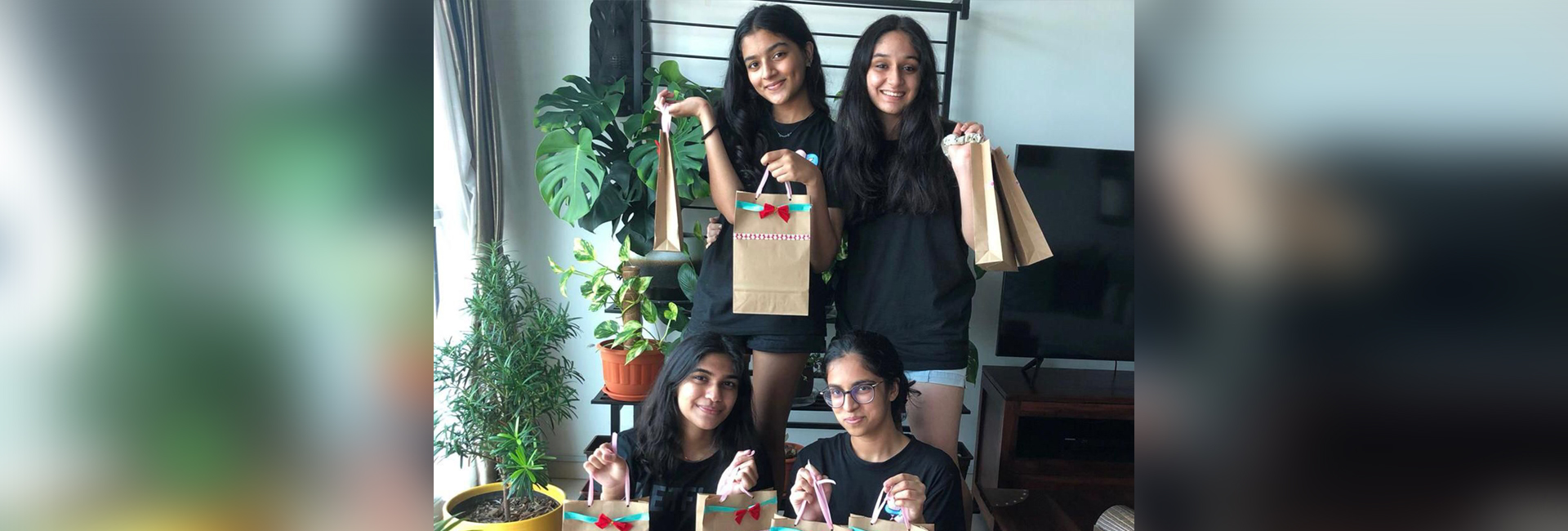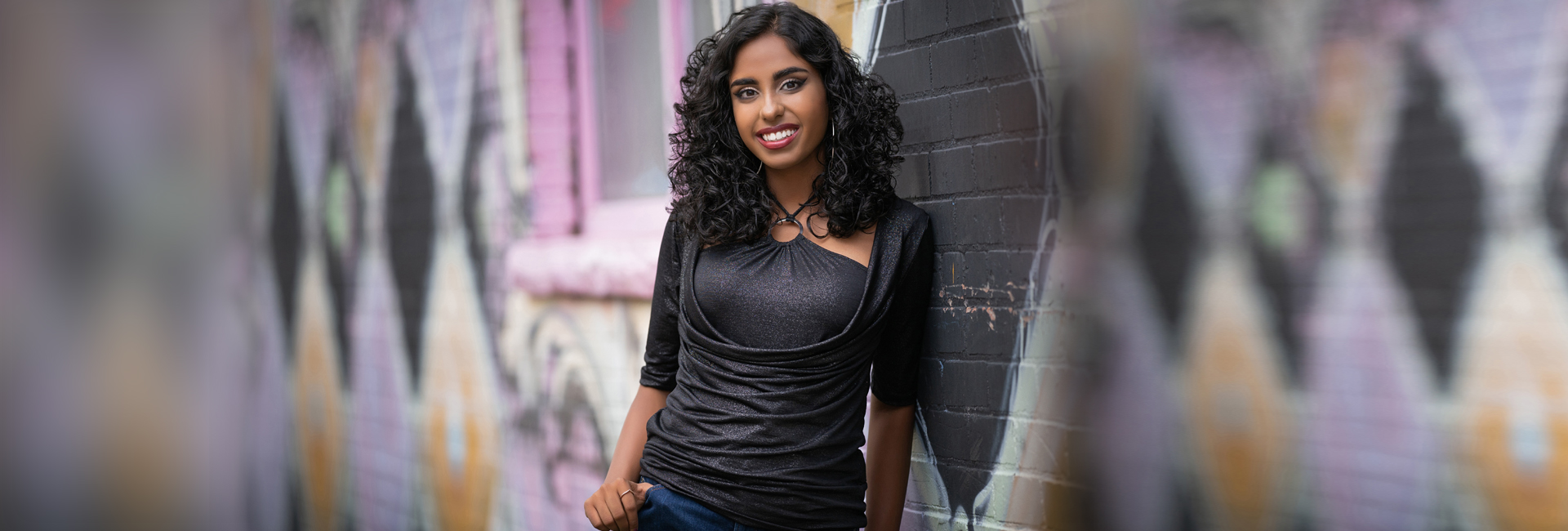(August 7, 2022) While accompanying her father to health centres during his second kidney transplant in 2018, fourteen-year-old Aanya Rao did not appreciate the dull hues of the space. “They should be bright enough,” to infuse some positivity into the minds and lives of the people already in a sombre mood, she thought.
Struck by the absence of vibrancy, the youngster delved into research on the impact of art in the healing process. It was then that the idea of Art:Connect germinated. “For many patients, special needs children, healthcare workers, and senior citizens hospitals and care centres have almost become like home. It is very important for them to have a vibrant and positive environment,” she tells Global Indian, while connecting from Singapore.
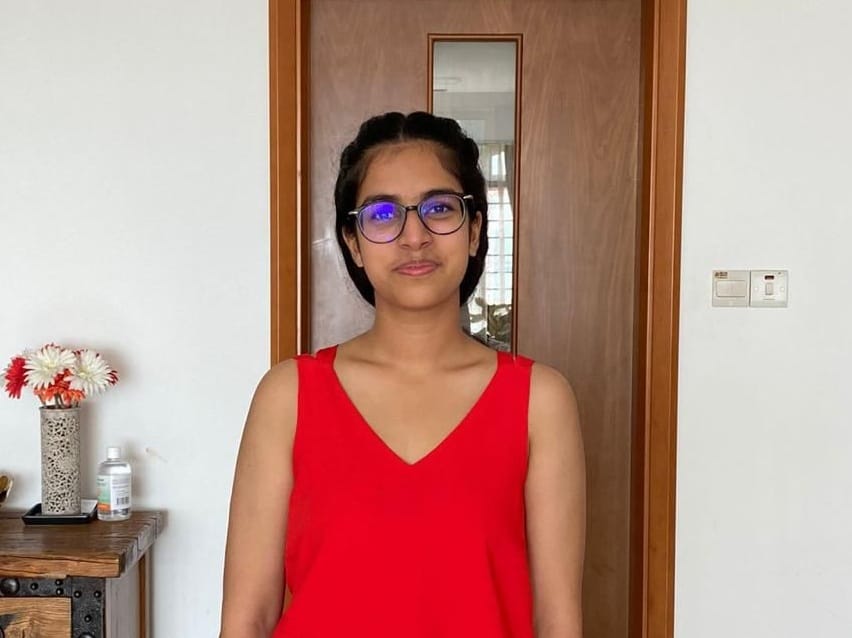
Aanya Rao, founder Art:Connect
From hobby to purpose
Aanya had always been in love with art, learning the nuances of fine arts since the time she was a seven-year-old. It was during the hospital visits with her father that she realised that the hobby can be utilised for a larger purpose. In 2020, she laid the foundation of the student-led body Art:Connect, and since then, the teenager along with 40 plus student volunteers studying in schools and colleges of Singapore, have been working in tandem to put their artistic talent to good use. To eliminate the starkness of the white walls, they coloured them up with murals in health care centres, displayed their handmade creations in exhibitions to raise funds, and organised art workshops and competitions for patients and senior citizens.
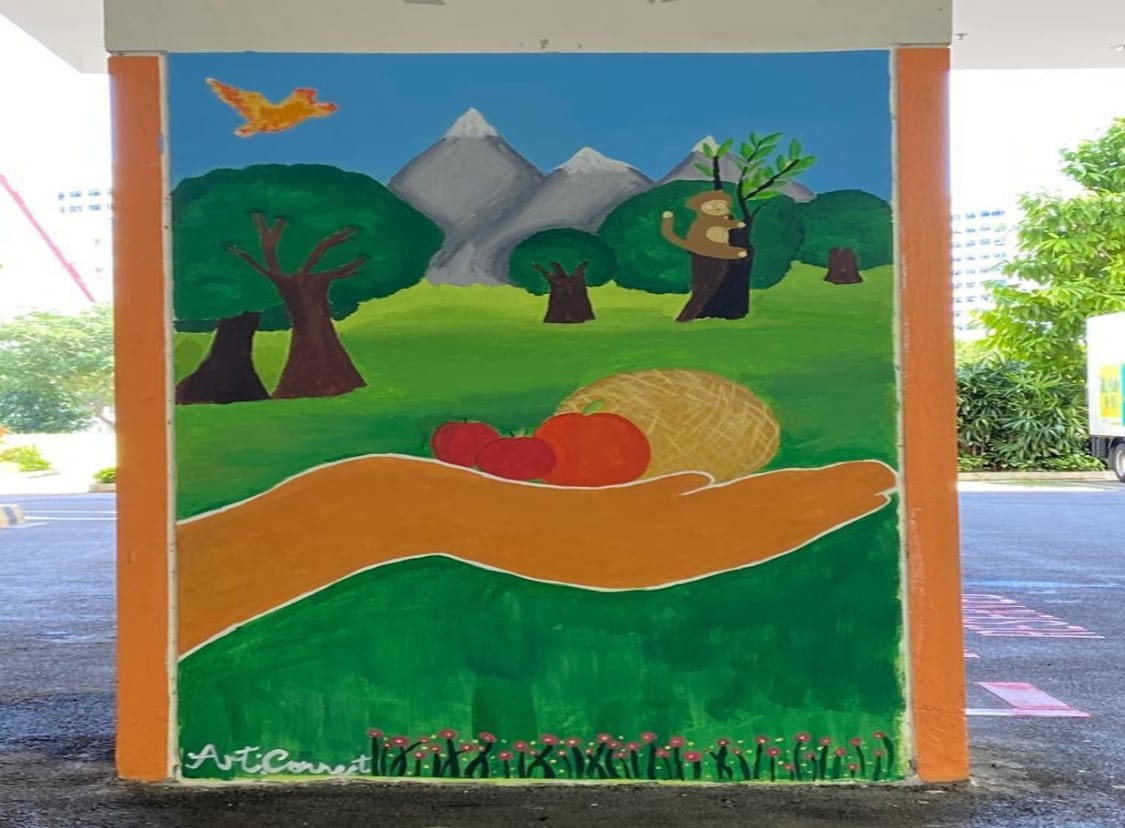

A mural by Art:Connect team at Vanguard Healthcare, Singapore
The Art:Connect team also conducts art workshops for mothers and their children suffering from lysosomal storage disorder, and diseases like phenylketonuria, thalassemia and osteogenesis. They have organised exhibitions to spread awareness about organ donation, dementia and mental health, and have been making greeting cards to brighten up the lives in hospitals during festivals. “While we started with brightening up walls, our initiative branched out into other areas connecting art with well-being,” says the teenager.
The team finds immense satisfaction in the fact that their creativity has not only got an audience but has been replacing gloominess with vibrancy. With their slogan, ‘Art can, and will, heal the world’ they have been leveraging the “healing power of art” to brighten lives of not just those who are suffering but also of the healthcare workers and caregivers who work in the emotionally, physically and mentally draining environments.
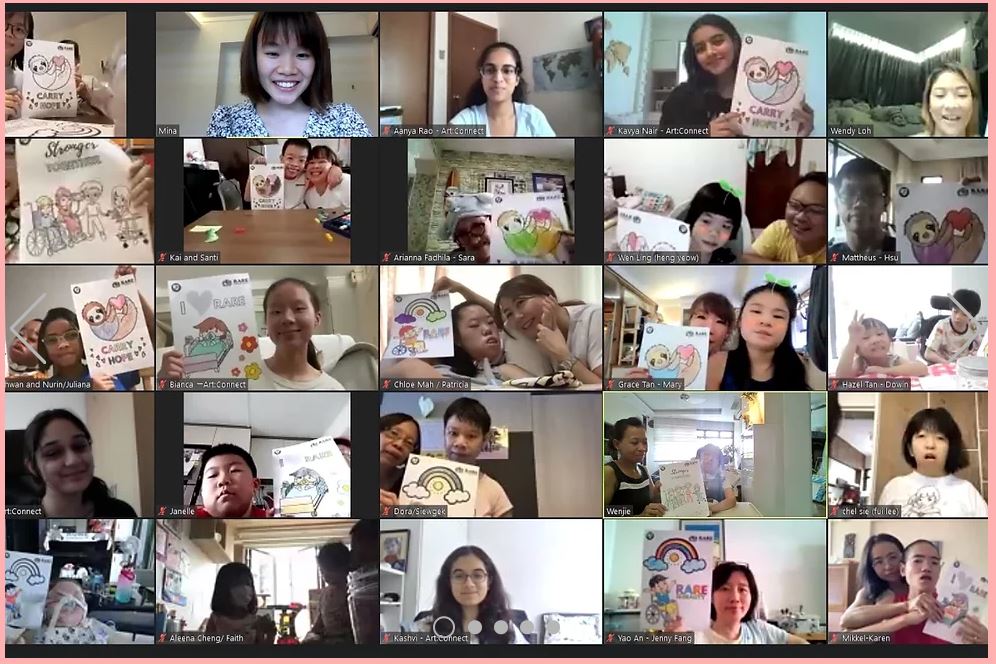

Art:Connect organised a special workshop in collaboration with Rare Disorders Society Singapore (RDSS)
Future ahead
To keep on adding a healing touch is what Aanya never wants to lose focus of. The 16-year-old, Class XI student of NPS International School Singapore, is working on succession planning and building the next step of leadership as she comes closer to her foray in the world of university education.
The Art:Connect team collaborates with about 500 students across schools of Singapore for special projects. “Moving on from a core team of five, I will play a more advisory role,” informs the teen about her non-profit’s future plan.
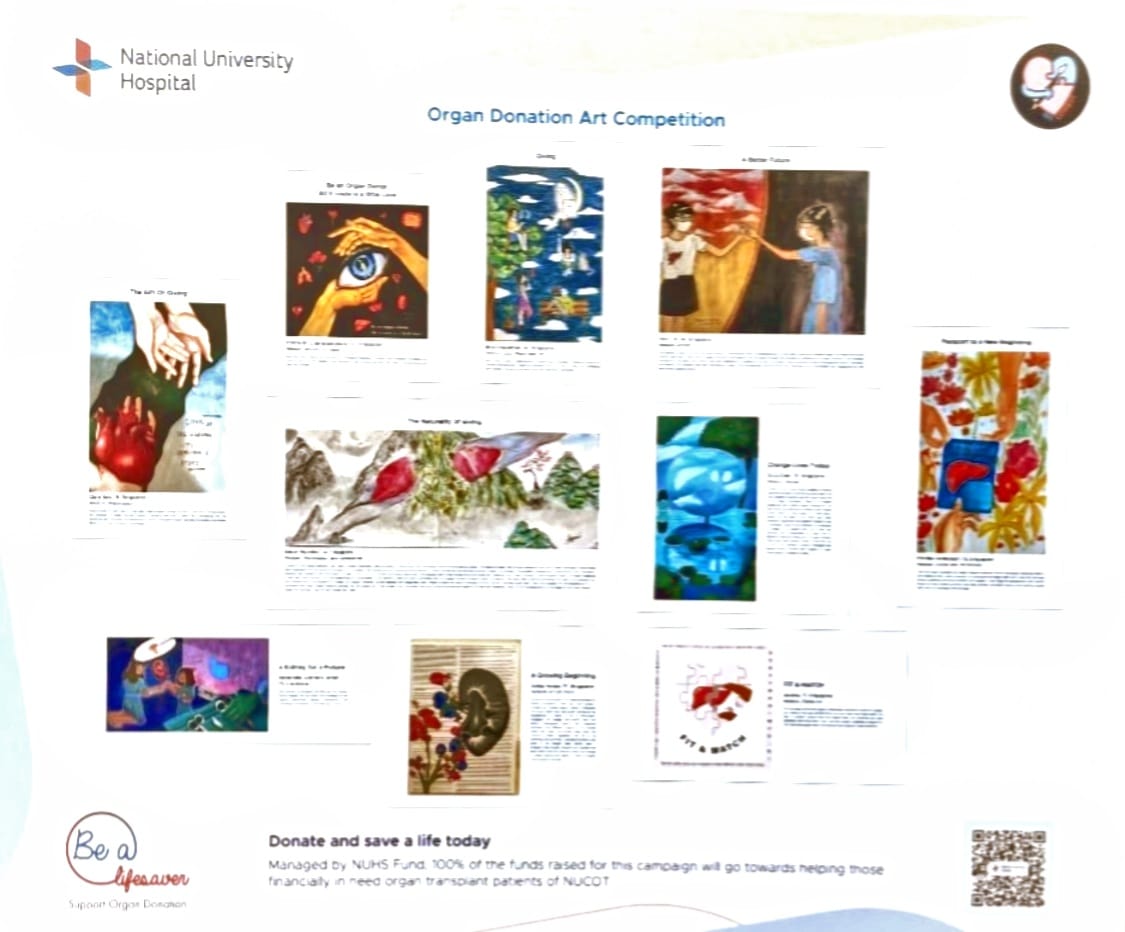

Art:Connect’s organ donation awareness exhibition in collaboration with National University Hospital, Singapore
A STEM lover, Aanya plans to pursue either biotechnology or bioengineering in college. A trained Bharatnatyam, Kathak and ballet dancer, she ‘absolutely loves art’, and finds working for Art:Connect a great stress buster.

